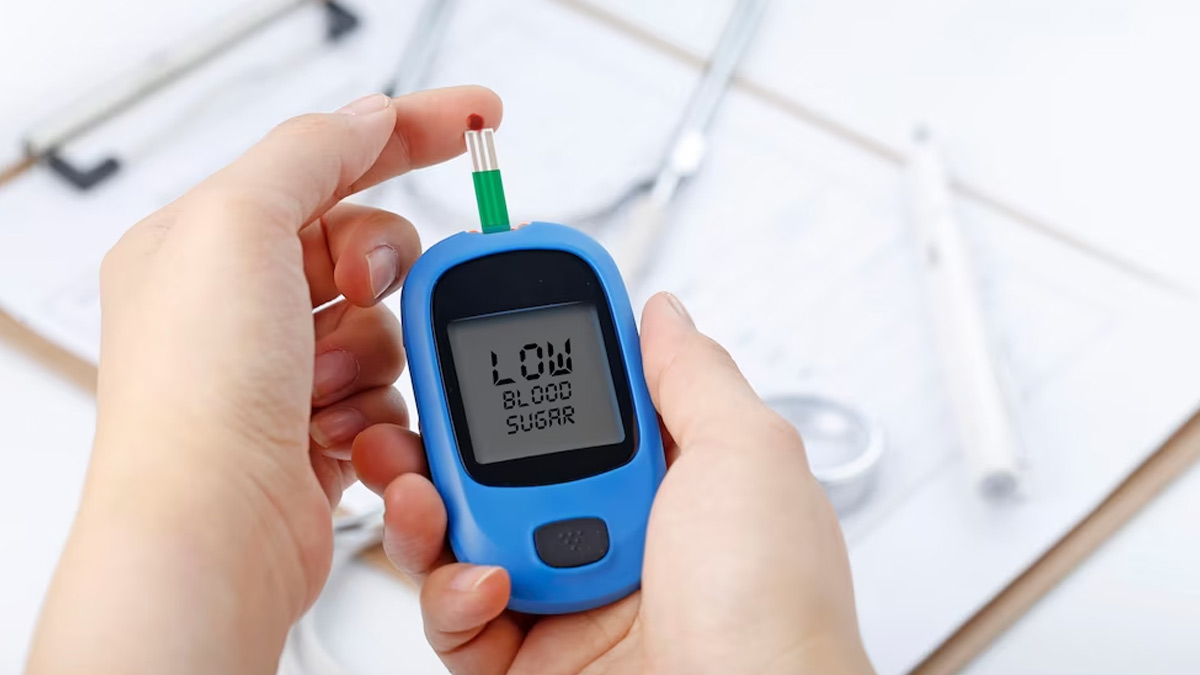
Low blood sugar, or hypoglycemia, is commonly associated with diabetic patients who take medications that can cause a drop in blood sugar levels. But it is not uncommon for non-diabetic individuals to experience low blood sugar. To know more about why non-diabetic people experience this condition, we spoke to Dr Vidya Tickoo, Consultant Endocrinologist and Diabetologist, Yashoda Hospitals, Hyderabad
Table of Content:-
What Happens When Blood Sugar Level Dips

Dr Tickoo said, "A person whose blood sugar levels drop shows symptoms, such as sweating, tremors, palpitations, and hunger. In severe cases, changes in behaviour and unconsciousness are also seen."
Reasons for Low Blood Sugar Levels In Non-Diabetic People
Here's why non-diabetic people experience low blood sugar levels.
Postprandial Hypoglycemia
According to Dr Tickoo, "One common cause of low blood sugar in non-diabetic people is known as postprandial hypoglycemia. In this condition consuming a heavy meal rich in carbohydrates, causes a rapid increase in insulin release and a subsequent decrease in blood sugar levels." She said that postprandial hypoglycemia typically occurs two to three hours after eating and is often observed in individuals who have recently lost weight, particularly those who were obese.

Also Read: 8 Warning Signs Of Low Blood Sugar Levels
Suggesting the solution for this condition, Dr Tickoo said, "You should consume small, frequent meals that are low in simple carbohydrates (such as refined flour, sugary beverages, and sweets) and higher in complex carbohydrates (whole grains) and proteins." Additionally, medications can be used to treat postprandial hypoglycemia, she added.
Reactions to Medication
Your blood sugar levels can also do down as a reaction to certain common medications. According to our expert, certain combinations of salt, such as methimazole (used to treat high thyroid levels) or alpha-lipoic acid (found in some medications for nerve pain) can cause low blood sugar levels.
She said, "Some commonly prescribed antibiotics and blood pressure medications may also contribute to low blood sugar levels. Thus, if you are experiencing low blood sugar levels, it is important to check you are taking any of these medications."
Alcohol Abuse

Dr Tickoo said, "Excessive consumption of alcohol can also lead to low blood sugar levels." In this condition, your liver works to eliminate alcohol from your blood rather than managing your blood sugar.
Insulinoma
Another cause of low blood sugar is a pancreatic tumour called insulinoma. Dr Tickoo said, "Insulinoma causes the pancreas to produce excessive amounts of insulin, leading to low blood sugar levels, especially in the early morning or during fasting." She said that the treatment for this condition is the surgical removal of the tumour.
Also Read: Rule Of 15 To Treat Hypoglycemia, Expert Explains
Other Health Conditions
Dr Tickoo said, "In some cases, low blood sugar levels can be temporary and related to underlying health conditions." Citing examples, she added that in patients with kidney or liver failure or severe infections, blood sugar levels can temporarily decrease and typically recover once the condition is treated.
Conclusion
It is important to recognise that low blood sugar levels can occur in individuals without diabetes and require proper evaluation and treatment. If you experience symptoms of hypoglycemia, it is recommended to consult with a healthcare professional to determine the underlying cause and appropriate treatment approach.
[Disclaimer: The information in this article is provided by a registered medical practitioner. However, we recommend you to consult your healthcare provider for accurate diagnosis and treatment.]
Also watch this video
How we keep this article up to date:
We work with experts and keep a close eye on the latest in health and wellness. Whenever there is a new research or helpful information, we update our articles with accurate and useful advice.
Current Version